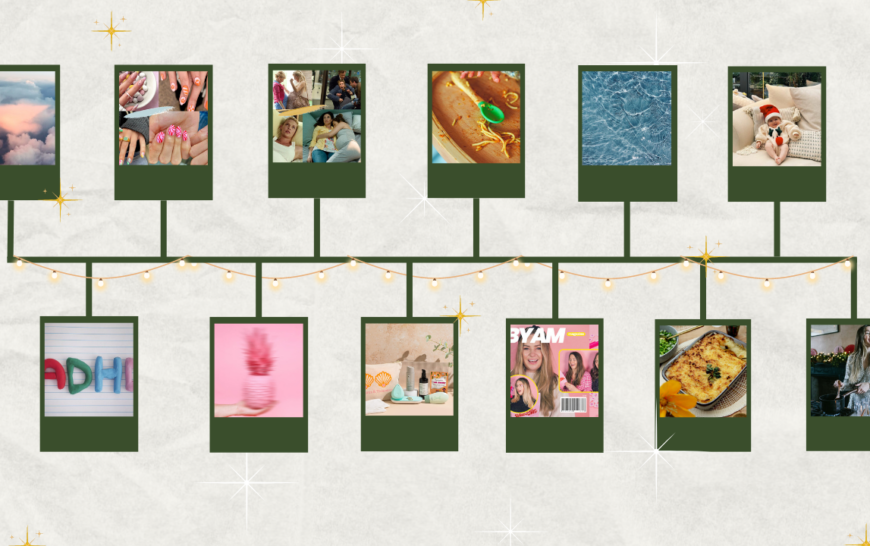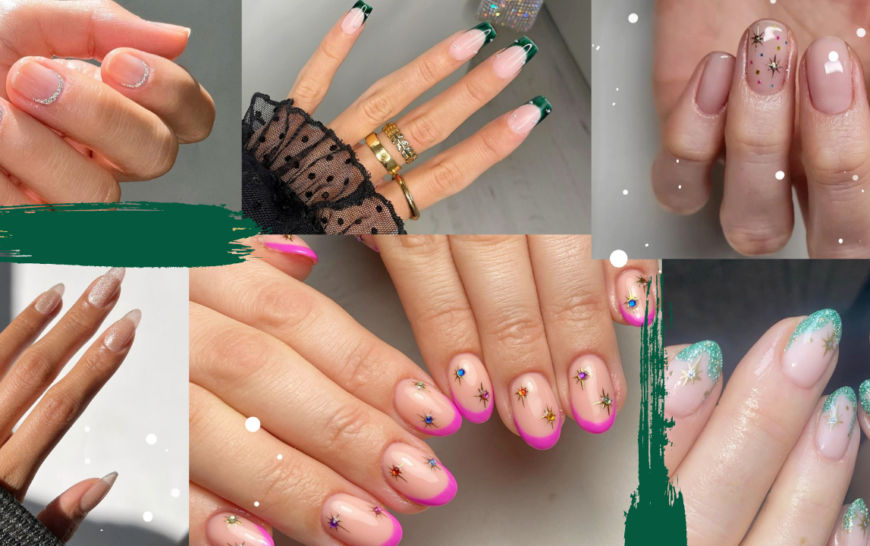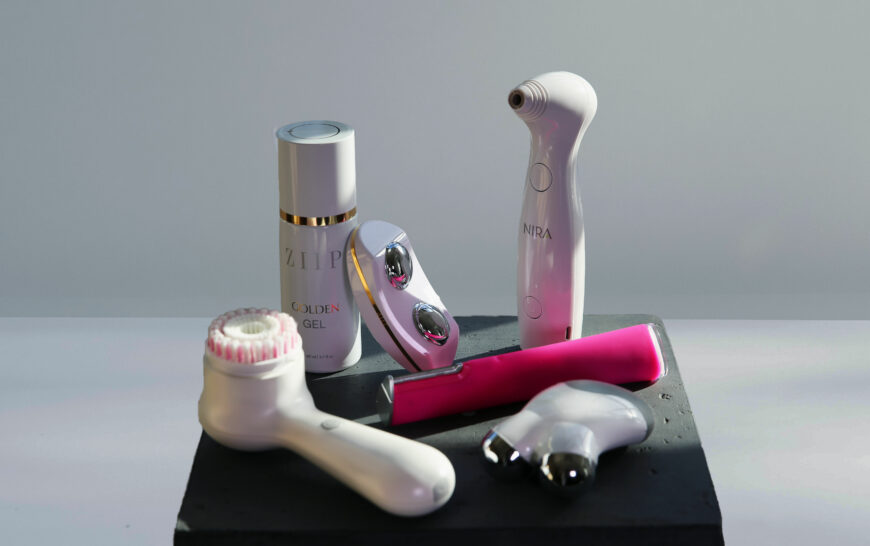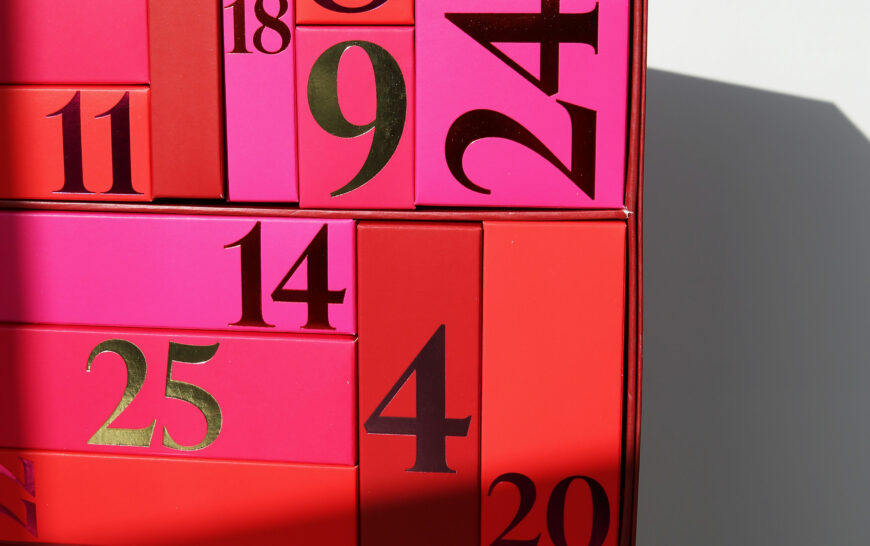
The Sustainable Period Products That Could Change Your Cycle For The Better
Ladies, we've got enough to worry about each month, so when Auntie Flow comes round, you just want to keep things simple and ride out those waves until you're cramp free again. But did you know that your period might be as unkind to the environment as it is to your uterus?
If you’re feeling conscious about your period product choices, here’s a few alternative ways you can have a happy period and decrease your impact on the planet too.

Mooncup
One of the most popular alternatives to emerge on the period market, Mooncup provides an eco-friendly and convenient alternative to tampons and pads that you can re-use with every cycle and wear through everything from swimming to travelling and more!
The Mooncup comes in 2 different sizes depending on your flow and whether you’ve had children, and can be emptied, cleaned, and reinserted every 4-8 hours depending on your flow.
Worried about putting it in? No need! Simply squish the cup into a ‘C’ shape and insert it inside your vagina, allowing it to sit low and expand open naturally as your muscles will hold it in place during the day.
Not only will it save you money in the long-run, but it’s a convenient one-job solution to your period needs – no need for stockpiling and backups with this cuppa flow in your life!
Available at Mooncup.co.uk and Boots for £21.99
DAME
Offering the first reusable applicator, DAME’s organic cotton tampons have helped save 300 million pieces of plastic from entering the ocean since launching their applicator set.
Alongside their organic cotton tampon, DAME is on a mission to reduce the environmental footprint left by period product production and consumption. From chemical free biodegradable tampons and natural ingredients in their printing, to donating tampons to women in need across the world and recycling old applicators to reuse in future products, DAME is championing the mantra of reducing, reusing, and being conscious where we can!
Available at wearedame.co and Waitrose, prices start at £8.50 per month for the subscription or £24.99 for the applicator set.


Reusable Sanitary Pads
If tampons aren’t your thing and you’re feeling brave, then reusable sanitary pads might be your cycle’s BFF! With a soft fabric outer layer and an absorbent layer of fleece, simply pop these in your pants, secure, and leave them to do their job – FYI, it’s estimated you’ll need to change about 6 times a day.
When you’re done for the day, simply pop the towel in the wash on 60 degrees and leave to dry – it’s recommended you have 6-8 towels per cycle, so they can be washed and dried in time to reuse.
Not feeling the cotton pads? Try organic cotton and biodegradable pads instead! Brands such as Natracare offer plastic-free, vegan friendly and natural pads that are as good at absorbing as your regular sanitary products, but are a lot kinder to the environment.
Available at Amazon and various health food stores, Natracare available at Waitrose, Ocado, and Amazon – prices start at £2.16.
ohne
Who knew periods could be so convenient! No need to worry about popping out to the shops for your monthly reliables, ohne provides a tailored tampon service that allows you to pick the amount of tampons you need per cycle, the absorbency, and how often you need them delivered.
Whether you’re a fan of naked or applicator tampons, ohne’s tampons are made from 100% organic cotton and fully recycled cardboard, all unscented, unbleached, and with enough protection to help you go about your day worry-free. Not only that, but they’re Soil Association and GOTS certified, fully biodegradable, vegan and cruelty-free, and are made using renewable energy sources – bloody impressive stuff.
As a little added extra, ohne also offers two 1% CBD oil for cramps and mood swings, one to rub on your tender belly and the other to ingest so you can experience a totally relaxed period with zero fuss.
Available at ohne.com, prices start from £4.90

Still want more information about sustainable periods? We sat down with the founders of ohne to get the flow-down on environmentally friendly period products and how they’re changing the world one tampon at a time…
What made you start OHNE?
There are so many reasons contributing to why we started ohne, it’s hard to distill them into one story! We have been friends ever since we were put in neighbouring rooms in uni halls and have basically been inseparable ever since. It honestly never occurred to us to go into business together until one of our many late night (and wine-fuelled!) chats got out of hand and we realised we had the seed of an amazing business idea. We couldn’t stop talking to each other about everything we saw that was wrong with the period product industry. From our initial hatred of the hyper-feminine flowery designs on pads to the point when we finally researched what mainstream period products are actually made of (spoiler alert: a horrifying cocktail of nasty chemicals and toxins), we realised there was no going back. We had to create the period product company of our dreams, because no one else was going to do it!
Why are sustainable period products so important?
The average period uses up to eleven plastic bags worth of plastic every bloody month. By opting for a more sustainable period product option, such as 100% organic cotton and biodegradable tampons, you’re saving up to 132 plastic bags worth of plastic a year – aka enough plastic to wrap around four killer whales. And, we don’t know about you, but we’d rather save all that ocean real estate for the actual fish!
Not to mention the fact that pads and tampons are made of a lot more than just cotton – think a nasty cocktail of chemicals and toxins that includes rayon, dioxin, and chlorine bleach, to name just a few! And the parts that are cotton? Well, we hate to be the bearers of bad news, but there’s still a problem there, too. Non-organic cotton is known to be one of the most intensively farmed crops in the world. Approximately 25% of the world’s insecticides and 10% of the world’s pesticides are used in it’s production. This makes the farmers who cultivate the land very sick and causes up to 20,000 deaths each year from pesticide poisoning in developing countries. We’re pretty sure this is enough to turn any menstruating human off non-organic cotton period products for good.
People will use up to 11,000 tampons over the course of their lifetime in the most sensitive and absorbent part of their bodies – this is pretty much as serious as a product relationship gets, so opting for sustainable, safe period products is crucial.
How do you guarantee that products work as well and still have the ability to biodegrade?
ohne tampons are made with 100 percent organic cotton which means they biodegrade in 4-6 months. Non-organic brands include other materials, some of these are to help with their tampon’s absorbency which means they can take over 500 years to biodegrade. We make it a priority to educate our customers on correct and careful tampon use, which involves making sure you’re changing your tampon every 4-6 hours and only using the correct absorbancy for your flow. When people use a higher absorbency so they can keep it in longer, this actually goes against the FDA recommendations for tampon use.
Using a new product can take some getting used to – our tampons aren’t designed to be absorbent for hours upon hours because not only is it not safe to leave tampons in for extended periods of time, the hyper-absorbent materials and ingredients mainstream brands put in their tampons are really unsafe! An organic tampon has never once been linked to a case of TSS, but we think it’s important to be as careful and vigilant as we can when we’re talking about products that get up close and personal to our vaginas – which have the thinnest and most absorbent skin fo anywhere in the body!
So: if you’re used to using a hyper-absorbent, toxin-filled tampon for longer than 8 hours at a time, there’s a small chance you might find that you need to change an organic, biodegradable tampon more frequently, but this is a good thing!

Tell us about your CBD products and how these can help?
We’re the creators of the UK’s first pro-period CBD oils, holy cramp, which is a topical CBD oil intended for period pain, and yours, hormonally, an ingestible daily CBD supplement.
‘holy cramp’ is designed to be used by rubbing a few drops onto the areas of the skin where pain is felt (for period pain this will usually be on the belly above where the uterus is or on the lower back), but we’ve also had a lot of success popping a few drops into a steaming bubble bath and letting the CBD and essential oils in it soothe all our pains and worries away. Leah even swears by putting a few drops onto the end of her tampon before inserting it. CBD is great for period pain because it has been found to have relaxant and analgesic effects, meaning it can help get those cramping uterus muscles to chill out.
‘yours, hormonally’ on the other hand, is a daily ingestible CBD supplement designed to help maintain balanced hormone levels throughout the menstrual cycle, long-term. In addition to being great at soothing aches and pains, CBD is also an adaptogen – AKA, a plant (or herb) capable of supporting your adrenal system to balance your hormones and help manage your stress levels. Adaptogens help speed up or slow down the release of certain hormones, depending on what your body needs at a given time. We’ve found that, when we’re experiencing low moods, lack of motivation, and, most importantly, heightened stress right before our periods strike, CBD helps keep us balanced and super chill so we can continue to be our best selves, every damn day!
What do you wish more people knew about period products they’ve probably been buying for years?
Shockingly, there are actually stricter regulations for the labelling of hamster food than there are for tampons in the UK (and Europe). The ingredients list of a tampon makes for a pretty disturbing read, and tampons are basically a chemical soup with contaminants linked to hormonal disruption, cancer, birth defects, dryness, and infertility.
We love the Fem Space on your website, why is it important for you to educate your customers on some of these topics?
A huge part of starting ohne for us was creating an ethical and socially responsible business. For us, community comes first. We want to create space both online and in real life for people with vaginas to talk freely about periods, menstrual cycles, and their bodies without the shame and stigma that is all too often attached to these topics. Periods are not taboo and treating them as though they are leaves a lot of people who have periods in the dark about how their bodies function. If we’ve got anything to say about it, in the future period taboos and all the shame and embarrassment that comes along with them will be totally stamped out! Education and normalisation are an enormous part of ridding society of these taboos, and that’s what we’re trying to achieve with fem space. It’s a place where there are no stupid questions and no topic is off limits – we’re talking and learning alongside our community about all the things we should have learnt in school (but didn’t).
What other steps can we take to make our periods more sustainable?
Zero-waste living and eco-friendly product alternatives are really taking off here in the UK. Sometimes it can feel a little overwhelming to start making changes in your own life – the pressure to be 100% perfect, 100% of the time is too much pressure and responsibility and can leave a lot of people feeling like they’re failing because they’re not a paragon of zero-waste living. At ohne, we’re more into championing the ‘low-impact’ lifestyle. This is basically about encouraging everyone to do a little bit to better the environment and help out the planet, rather than celebrating only the very few people who are able to live 100% zero-waste lifestyles. Switching to organic cotton tampons is a really simple step to make if you’re already using tampons. Investing in a pair of period pants to use on your lighter days could reduce your tampon or pad use massively without inconveniencing you (and pulling out almost entirely dry tampons isn’t fun or good for our vaginas anyway!). Another top tip would be to double check the packaging of your period products and making sure you’re properly recycling or disposing of each material in the right way rather than sending it all to landfill or accidentally contaminating your recycling bin with heaps of un-recyclable plastic. and remember: nobody’s perfect, but all the small gestures count.




